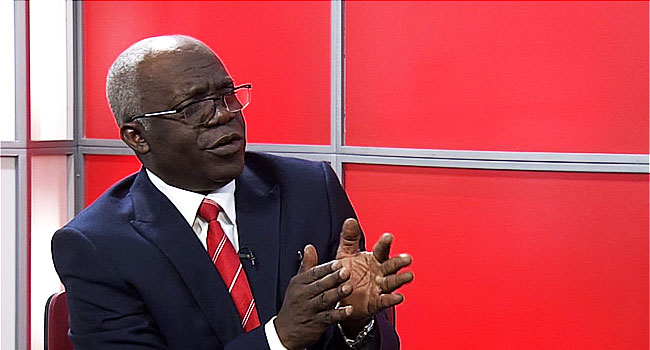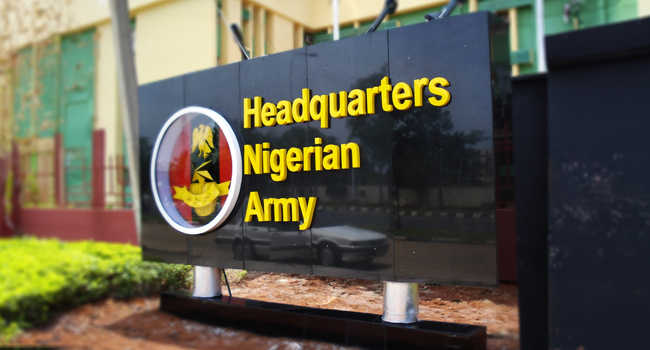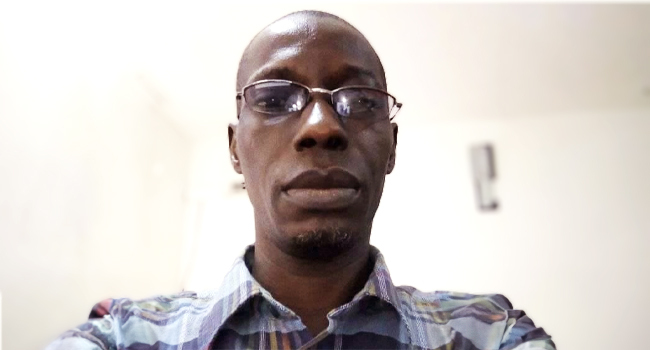The Nigerian Army has announced that Operation Positive Identification, OPI, which is on-going in the North East theatre of Boko Haram insurrection, would be extended to cover the entire nation.
Consequently, the Chief of Staff of the Nigerian Army, Lt-General Yusuf Buratai has directed the Nigerian people to move about with “legitimate means of identification such as National Identification Card, Voters Registration Card, Drivers’ License and International Passport or other valid official identification” during the duration of the so called Operation Positive Identification scheduled to hold throughout the country from November 1-December 23, 2019.
The Operation Positive Identification is being conducted by the Nigerian Army to combat armed robbery, kidnapping and allied criminal activities in all the 36 States of the Federation.
However, Senior Advocate of Nigeria, Mr Femi Falana thinks that the decision of the authorities of the Nigerian Army to subject law abiding citizens to personal identification on the road constitutes a gross infringement of their constitutionally guaranteed fundamental rights to freedom of movement and dignity.
“It is a sad reminder of the illegal practice of the white minority rulers which compelled Africans to carry pass books outside their homelands or designated areas under the apartheid regime in South Africa.
As Nigerians are not under apartheid regime they should not be forced to carry pass books which have been outlawed in the democratic republic of South africa. In the recent past, “Operation Python”, “Operation Scorpion” and similar operations conducted by the Nigerian Army in civilian areas had led to the reckless arrests, detention and extrajudicial killing of innocent citizens. In fact, some of the armed soldiers involved in anti robbery operations have been indicted in the brutal killing of police officers on duty. They have also and raped women including undergraduates. Since majority of Nigerians do not have any of the aforesaid pass books they are going to be subjected to unwarranted intimidation and physical attacks by armed soldiers under the pretext of looking for criminal elements,” Falana says.
He adds that since Nigerians are not a conquered people the degrading Operation Positive Identification should be stopped by the military authorities.
READ ALSO: Operation Positive Identification: Falana Sues Nigerian Army, Buratai And Malami
According to him, it is pertinent to point out that the operation is illegal on the following grounds:
1. By virtue of sections 215 and 217 of the Constitution of Nigeria the Nigeria Police Force is saddled with the responsibility to maintain law and order in the country while the armed forces are required to defend Nigeria from external aggression and maintain its territorial integrity.
2. However, the armed forces may be involved in the suppression of insurrection and acting in aid of civil authorities to restore order when called upon to do so by the President. In the instant case, there no insurrection has been recorded in many parts of the country to warrant the planned usurpation of police powers by the Nigerian Army. Neither has President Buhari deployed armed soldiers to combat armed robbery, abduction and banditry.
3. In several cases Nigerian courts have held that the armed forces have no right to usurp the powers of the Police to maintain internal security in the country. In particular, the armed forces have been restrained from maintaining law and order during elections in the following cases:
a. In Buhari v Obasanjo (2005) 1 WRN 1 at 200, Abdullahi PCA (as he then was) had admonished “in spite of the non-tolerant nature and behavior of our political class in this country, we should by all means try to keep armed personnel of whatever status or nature from being part and parcel of our election process. The civilian authorities should be left to conduct and carry out fully the electoral processes at all levels”.
b. In Yusuf v. Obasanjo (2005) 18 NWLR (Pt. 956) 966 @ 174 – 175, Salami JCA (as he then was) said:
“It is up to the police to protect our nascent democracy and not the military, otherwise the democracy might be wittingly or unwittingly militarized. This is not what the citizenry bargained for, after wrestling power from the military in 1999, conscious steps should be taken to civilianize the polity and ensure survival and sustenance of democracy.”
c. In All Progressive Congress v Peoples Party & Ors (2015) LPELR- 24349, the Court of Appeal had lucidly stated the position thus:
“The law does not appear to make any provisions or provide a role for the Armed Force or the military to dabble in civil activities like elections to elect civilian leaders except perhaps to exercise their right of franchise to vote in their Barracks.”
In view of the foregoing, Falana says he is compelled to call on the Commander-in-Chief of the Armed Forces, President Muhammadu Buhari to restrain General Buratai from forcing the Nigerian people to carry passes to exercise their fundamental right to freedom of movement.
“Instead of competing with the Police in maintaining law and order in the country the Nigerian Army should concentrate efforts in prosecuting the was on terror. However, if General Buratai is not called to order we shall not hesitate to approach the Federal High Court with a view to obtaining an order to mandate him to comply with section 4 of the Police Act which provides that “The police shall be employed for the prevention and detection of crime, the apprehension of offenders, the preservation of law and order, the protection of life and property and the due enforcement of all laws and regulations with which they are directly charged, and shall perform such military duties within or without Nigeria as may be required of them by or under the authority of this or any other Act””.





